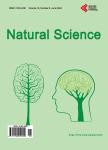Glycine supplementation reduces the severity of chemotherapy-induced oral mucositis in hamsters
作者机构:Department of PediatricsFederal University of Sao PauloSao PauloBrazil Former Head Division of DentistryPediatric Oncology InstituteSao PauloBrazil Department of PathologyFederal University of Sao PauloSao PauloBrazil Section of Oral MedicineUniversity of Connecticut Health CenterFarmingtonUSA Department of BiochemistryFederal University of Sao PauloSao PauloBrazil Department of PediatricsIOP/GRAACC Medical School of Federal University of Sao PauloSao PauloBrazil
出 版 物:《Natural Science》 (自然科学期刊(英文))
年 卷 期:2013年第5卷第9期
页 面:972-978页
学科分类:1002[医学-临床医学] 100214[医学-肿瘤学] 10[医学]
主 题:Glycine Chemotherapy Oral Mucositis Neutrophils Malondialdehyde Inflammatory
摘 要:Objective: Oral mucositis (OM) is a devastating toxicity associated with cytotoxic cancer therapy. The OM pathogenesis and the complex interactions occur in response to tissue insult. Application of this evolving model has aided in the development of mechanistically based therapies for the prevention and treatment of mucositis. The present study was to assess the effects of glycine supplementation on chemotherapy-induced oral mucositis. Methods: In a hamster cheek pouch model of chemotherapy-induced oral mucositis, one group of 20 animals received systemic glycine supplementation for 7 days, while another similar control group did not. Clinical mucositis severity and neutrophil infiltrate (on histology) were assessed by blinded examiners. Free radical production was measured as malondialdehyde (MDA) levels. Results: As compared to control animals, glycine-treated animals demonstrated a highly significant reduction in clinical severity of oral mucositis, neutrophil infiltrate, and MDA levels (p 0.001 for all). Conclusions: Glycine supplementation reduces the severity of chemotherapy-induced oral mucositis in an animal model. This effect is at least partly mediated through inhibition of the inflammatory response and reduced production of damaging free radicals.



